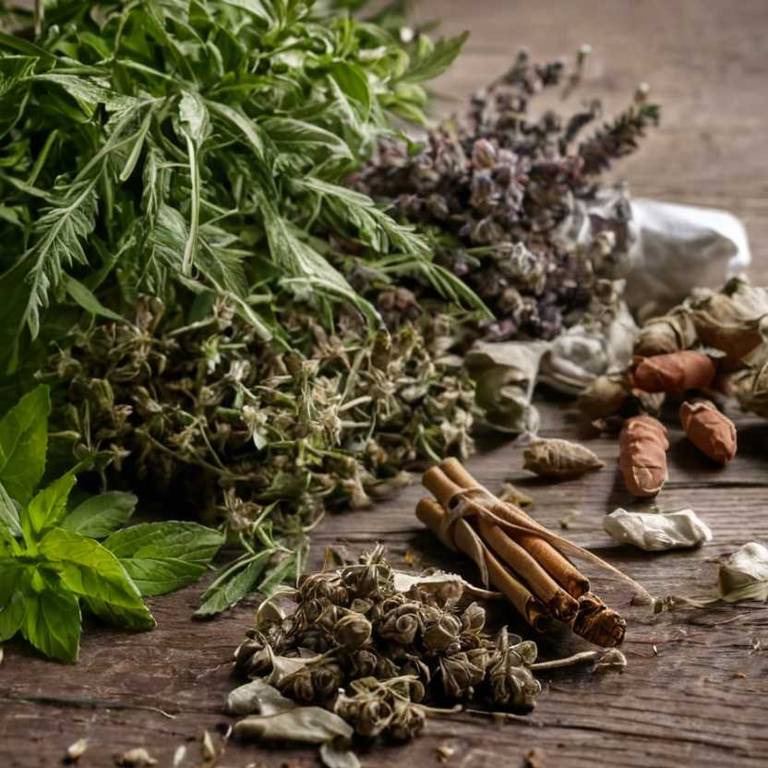European Plum (Prunus domestica)
European Plum (Prunus domestica) is a member of the Rosaceae family, native to Central Asia, Eastern Europe, and Southern Europe. Traditionally, its fruits, bark, and leaves have been used for decoctions, culinary uses, and infusions.
This herb is particularly valued for its astringent, anti-inflammatory, and tonic actions, and has a long history of use in european herbal medicine, mediterranean herbal traditions, and traditional chinese medicine.

Quick Facts / Key Information
| Common Name | European Plum |
|---|---|
| Scientific Name | Prunus domestica |
| Plant Family | Rosaceae |
| Genus | Prunus |
| Species | domestica |
| Native Range | Central Asia, Eastern Europe, Southern Europe |
| Plant Parts Used | Fruits, Bark, Leaves |
| Primary Medicinal Actions | Astringent, Anti-Inflammatory, Tonic |
| Primary Traditional Systems | European Herbal Medicine, Mediterranean Herbal Traditions, Traditional Chinese Medicine |
| Historical Preparation Methods | Decoction, Culinary Use, Infusion |
Botanical Identity
- Scientific Name
- Prunus domestica
- Common Name
- European Plum
- Synonyms / Alternative Names
- Prune Plum, Domestic Plum, Common Plum
- Plant Family
- Rosaceae
- Genus
- Prunus
Botanical Description
- Growth Habit
- Perennial herbaceous plant.
- Height
- It typically reaches a height of 4 to 10 meters.
- Leaves
- Lanceolate leaves with dorsiventral coloration, upper surface glossy green, lower surface duller green, bearing prominent stomatal bands.
- Flowers
- Flowers are solitary, actinomorphic, with five white petals and five yellow stamens, and a superior ovary with two carpels
- Stems
- Smooth, woody, erect stems with opposite branching, bearing persistent brown bark and conspicuous leaf scars.
Traditional Uses / Historical Use
Traditional Systems
- European Herbal Medicine
- Mediterranean Herbal Traditions
- Traditional Chinese Medicine
- Japanese Kampo Medicine
Historical Preparation Methods
- Decoction
- Culinary Use
- Infusion
- Poultice
Medicinal Actions
- Astringent
- In herbal literature, noted as a calming astringent, in drying-focused uses.
- Anti-inflammatory
- Traditionally described as a mild anti-inflammatory, for general calming applications.
- Tonic
- Commonly referenced as a warming tonic, in whole-system applications.
- Diuretic
- As described in traditional systems, a soothing diuretic, in urinary system discussions.
Active Compounds
- Flavonoid
- Naturally occurring polyphenols that contribute to pigmentation and structural chemistry.
- Tannin
- High-molecular-weight phenolic compounds found in many plant species.
- Phenolic Acid
- Organic acids commonly occurring as part of plant secondary metabolism.
- Glycoside
- Plant-produced compounds commonly stored in inactive glycosylated forms.
Modern Research Overview
Scientific literature concerning this plant spans multiple areas, including phytochemistry and laboratory research. Detailed analysis of published studies is not included at this time and will be added as part of future editorial expansion.
Safety & Contraindications
- General Precautions
- General precautions have been noted regarding the use of this herb.
- Contraindications
- Contraindications related to this herb have been noted in traditional use and available sources.
- Allergies
- Reports of allergic reactions to this herb are not well documented in available sources.
- Drug Interactions
- The potential for interactions with prescription medications has not been extensively studied.
- Toxicity
- Available information regarding the toxicity of this herb is limited.
- Pregnancy & Breastfeeding
- Use during pregnancy or breastfeeding has not been clearly established in available sources.
Preparation & Usage Methods
- Infusion
- Infusions are commonly prepared using hot water to release aromatic and soluble components.
- Decoction
- Plant parts are gently boiled in water to release soluble constituents.
- Poultice
- This method uses direct contact between plant material and the skin.
- Culinary Use
- Culinary use includes adding plant material to recipes or beverages.
- Tincture
- A preparation involving soaking plant parts in alcohol for extended extraction.
Growing, Harvesting & Storage
Growing / Cultivation
- Soil
- Prefers loamy soil with well-drained conditions. Typically grows best in organically rich soils.
- Sunlight
- Thrives in full sun. Tolerates full sun to partial shade.
- Watering
- Prefers well-balanced moisture levels. Tolerates periodic dry conditions.
Medical Disclaimer
The information provided on this page is for educational and informational purposes only. It is not intended to diagnose, treat, cure, or prevent any medical condition. Always consult a qualified healthcare professional before using any herb for medicinal purposes.